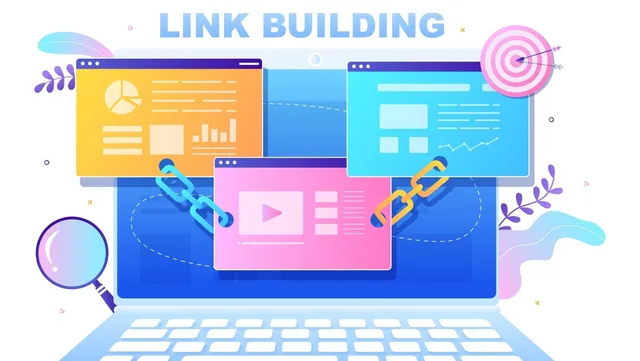Table of Contents
Getting on the first page of Google is crucial for any website. Most people don’t look beyond the first few results. If your site isn’t there, you’re missing out on traffic and potential customers. This is where SEO, or Search Engine Optimization, comes into play.
David Aziz is an expert in this field. He knows what it takes to climb the search engine ranks. With years of experience in digital marketing, he has helped many websites achieve better visibility. His insights can guide you in boosting your own site’s performance.
In this article, you will learn valuable tips and strategies from David Aziz. These techniques will help you optimize your site for search engines. Get ready to discover the secrets to getting your website noticed and ranking high on Google!
Understanding Google’s Ranking Factors

Google’s ranking factors are essential for anyone who wants to succeed online. These factors determine how websites appear in search results. If you want your site on the first page, it’s vital to understand what Google looks for.
Quality content is a significant factor. Google wants to show users the best information. Backlinks also matter. They signal to Google that other sites trust your content. Lastly, user experience is crucial. A site that is easy to navigate keeps visitors happy.
By knowing these factors, you can improve your site. It’s all about creating valuable content and ensuring users have a great experience. Let’s dive deeper into Google’s algorithm and keywords to see how you can rank higher.
Overview of Google’s Algorithm
Google’s algorithm is like a secret recipe for ranking websites. It decides which sites get the top spots in search results. This algorithm considers many factors, including quality content and backlinks.
Quality content means offering useful and informative articles. It should answer users’ questions. Backlinks are links from other websites to yours. They show Google that your site is trustworthy. If you focus on these aspects, your chances of ranking higher increase.
Importance of Keywords
- Keywords are the words or phrases people type into Google.
- Choosing the right keywords is essential for your site’s success.
- They help Google understand what your content is about.
- To find the best keywords, use tools like Google Keyword Planner or Ubersuggest.
- These tools show you how often people search for specific terms.
- By selecting the right keywords, you can attract more visitors to your site.
Optimizing Your Website for SEO
Optimizing your website for SEO is crucial if you want to rank higher on Google. SEO stands for Search Engine Optimization, and it helps your site appear in search results. When done correctly, SEO can drive more visitors to your site.
One of the first steps is to ensure that your site is user-friendly. A well-optimized website not only attracts visitors but also keeps them engaged. This means your site should load quickly and be easy to navigate. Let’s explore some essential techniques to optimize your website effectively.
When you implement the right SEO strategies, you set your site up for success. This includes using on-page SEO techniques and understanding technical SEO essentials. These components work together to enhance your website’s visibility on search engines.
On-Page SEO Techniques
- On-page SEO techniques are the changes you make directly on your website.
- These include using meta tags, headings, and image alt texts.
- Meta tags provide information about your page to search engines.
- Headings help organize your content and make it easy to read.
- Image alt texts describe your images to both users and search engines, making your content more accessible.
- Tips for creating high-quality content include writing clearly and using relevant keywords naturally.
Technical SEO Essentials
Technical SEO is about making your website work better for search engines. One important aspect is website speed. A fast-loading site improves user experience and helps with rankings.
Another essential factor is mobile-friendliness. Many users browse on their phones, so your site must look good on smaller screens. Additionally, using structured data can help your site stand out in search results, making it easier for search engines to understand your content.
Building High-Quality Backlinks

Building high-quality backlinks is essential for improving your site’s authority. Backlinks are links from other websites to yours. They signal to search engines that your content is valuable and trustworthy. The more quality backlinks you have, the better your chances of ranking higher on Google.
To create these backlinks, you need to employ effective strategies. Focus on earning links from reputable sites. This way, you build a strong online presence. Let’s discuss some techniques for gaining valuable backlinks that can enhance your SEO efforts.
By focusing on high-quality backlinks, you boost your site’s credibility. It’s not just about quantity; the quality of your backlinks matters. Let’s explore how to earn and monitor these important links.
Strategies for Earning Backlinks
- Earning backlinks is a vital part of any successful SEO strategy.
- Backlinks play a crucial role in how search engines evaluate your site, helping to improve your website’s ranking and visibility.
- To earn these valuable links, consider techniques like guest posting and partnerships.
- Guest posting involves writing articles for other websites in exchange for a link back to yours.
- Collaborating with other businesses can also lead to mutual benefits.
- By creating high-quality content, you encourage others to link to your site.
Monitoring Your Backlink Profile
Once you’ve started building backlinks, it’s essential to monitor your backlink profile. This helps you understand the effectiveness of your efforts. Use tools like Ahrefs or SEMrush to track your backlinks and analyze their quality.
It’s also important to disavow low-quality links. Low-quality backlinks can harm your site’s reputation and ranking. By keeping your backlink profile clean, you ensure that your site remains credible in the eyes of search engines. This proactive approach can lead to better SEO results.
Utilizing Local SEO
Utilizing local SEO is crucial for businesses that serve specific geographic areas. Local SEO helps your business show up in search results when potential customers are looking for services nearby. By optimizing your online presence for local searches, you can attract more local customers and drive foot traffic to your physical location.
Local SEO strategies are essential for small businesses. They allow you to compete with larger companies in your area. Understanding how to optimize for local search can significantly impact your business’s visibility. Let’s dive into the importance of local SEO and how to effectively implement it.
By focusing on local SEO, you can connect with your community. It’s about making your business visible to those who are looking for your services. Let’s explore the key aspects of optimizing for local search.
Optimizing for Local Search
Optimizing for local search is essential for any business with a physical presence. Local SEO helps potential customers find you when they search for services in their area. This is particularly important for small businesses that rely on local customers.
One of the most effective ways to optimize for local search is by enhancing your Google My Business (GMB) listing. Make sure your GMB listing is complete and accurate. Include essential information like your business name, address, phone number, and hours of operation. Adding photos and customer reviews can also help improve your visibility.
Local Keywords and Content
- Incorporating local keywords into your content is vital for effective local SEO.
- Local keywords are terms that include geographic locations. For example, if you run a bakery in New York, use keywords like “best bakery in New York” in your content.
- Develop local content strategies to engage your audience.
- Create blog posts that highlight local events, news, or topics relevant to your area.
- This not only attracts local traffic but also establishes your business as a community expert.
- By aligning your content with local interests, you can strengthen your connection with potential customers.
Leveraging Social Media for SEO

Leveraging social media for SEO is a powerful strategy to boost your online presence. Social media platforms help increase your brand’s visibility and drive traffic to your website. When done right, your social media efforts can complement your SEO strategies and improve your search engine rankings.
Building a strong social media presence allows you to connect with your audience. Engaging with followers can lead to higher interaction rates, which search engines may view as a positive signal. In today’s digital landscape, social media is not just about marketing; it’s a vital part of your overall SEO strategy.
By actively using social media, you can create a community around your brand. This not only enhances brand loyalty but also encourages sharing, which can lead to increased visibility and potential backlinks. Let’s explore how to effectively leverage social media for better SEO results.
Building a Strong Social Presence
Building a strong social presence is crucial for enhancing your SEO. Social signals, such as likes, shares, and comments, can influence search engine rankings. When more people engage with your content on social media, it increases the chances of it being shared and seen by a wider audience.
To engage with your audience on social media, be consistent in your posting. Share valuable content that resonates with your followers. Respond to comments and messages promptly. This helps build a loyal community and encourages more interactions with your posts, further enhancing your social presence.
Sharing Content for Increased Visibility
Sharing content on social media is an effective way to increase your visibility. When you post blog articles and updates, it allows your audience to share them with their networks. This can lead to more website traffic and improved search rankings.
Incorporating visual content in your social media strategy is essential. Images, videos, and infographics attract more engagement than text alone. People are more likely to share visually appealing content, which can further expand your reach and visibility. Aim to create eye-catching graphics that align with your brand message and encourage sharing.
Continuous Monitoring and Adjustment
Continuous monitoring and adjustment of your SEO efforts are essential for maintaining a strong online presence. The digital landscape is ever-changing, and what works today may not work tomorrow. By regularly reviewing your performance, you can ensure that your strategies remain effective and aligned with current trends.
Regular check-ins on your SEO performance allow you to identify areas that need improvement. This proactive approach not only helps in troubleshooting issues but also enhances your overall strategy. Remember, SEO is a marathon, not a sprint. It requires ongoing effort and adaptation to stay ahead of the competition.
Let’s explore how to analyze your SEO performance and adjust your strategies based on data.
Analyzing Your SEO Performance
- Analyzing your SEO performance is the first step in understanding how well your website ranks in search engines.
- Tools like Google Analytics and Google Search Console are essential for tracking your website’s performance.
- Google Analytics provides insights into user behavior, such as how long visitors stay on your site and which pages attract the most traffic.
- Google Search Console complements this by giving you detailed information about your site’s search performance.
- It shows you which keywords are driving traffic, along with click-through rates and impressions.
- Regularly using these tools allows you to stay informed and make data-driven decisions for improving your SEO efforts.
Adjusting Strategies Based on Data
Once you’ve analyzed your performance data, it’s time to adjust your SEO strategies accordingly. Use insights from your analysis to adapt your approach. For example, if certain keywords are underperforming, consider revising your content to better target relevant keywords that can attract more traffic.
Staying updated with SEO trends is equally important for adapting your strategies. The world of SEO is always evolving, with new techniques and best practices emerging regularly. By keeping abreast of the latest trends, you can ensure that your strategies remain effective. Continuous adjustment based on solid data helps you maintain a competitive edge in search rankings.
Conclusion
In this article, we explored essential strategies to help you rank on the first page of Google. We discussed the importance of understanding Google’s ranking factors, optimizing your website for SEO, and building high-quality backlinks. Utilizing local SEO and leveraging social media also plays a significant role in improving your online presence.
Consistency is key when it comes to SEO efforts. Regularly monitoring your performance and adjusting your strategies based on data are crucial for long-term success. By implementing these techniques, you can enhance your visibility and drive more traffic to your website.
We encourage you to apply these strategies and share your experiences. Whether you’re just starting or looking to improve your current SEO practices, your insights can help others on the same journey. Let’s work together to conquer the challenges of SEO and achieve great results!
FAQs
What is SEO, and why is it important?
SEO stands for Search Engine Optimization. It helps your website rank higher in search results, increasing visibility and traffic.
How long does it take to see results from SEO?
Generally, it can take 3 to 6 months to see significant improvements, depending on competition and your efforts.
Can I do SEO on my own?
Yes, many tools and resources are available to help you learn and implement SEO techniques effectively.
What are backlinks, and why do they matter?
Backlinks are links from other websites to yours. They signal to Google that your content is credible and valuable.
Is local SEO different from regular SEO?
Yes, local SEO focuses on optimizing your online presence for local search results, which is essential for brick-and-mortar businesses.

